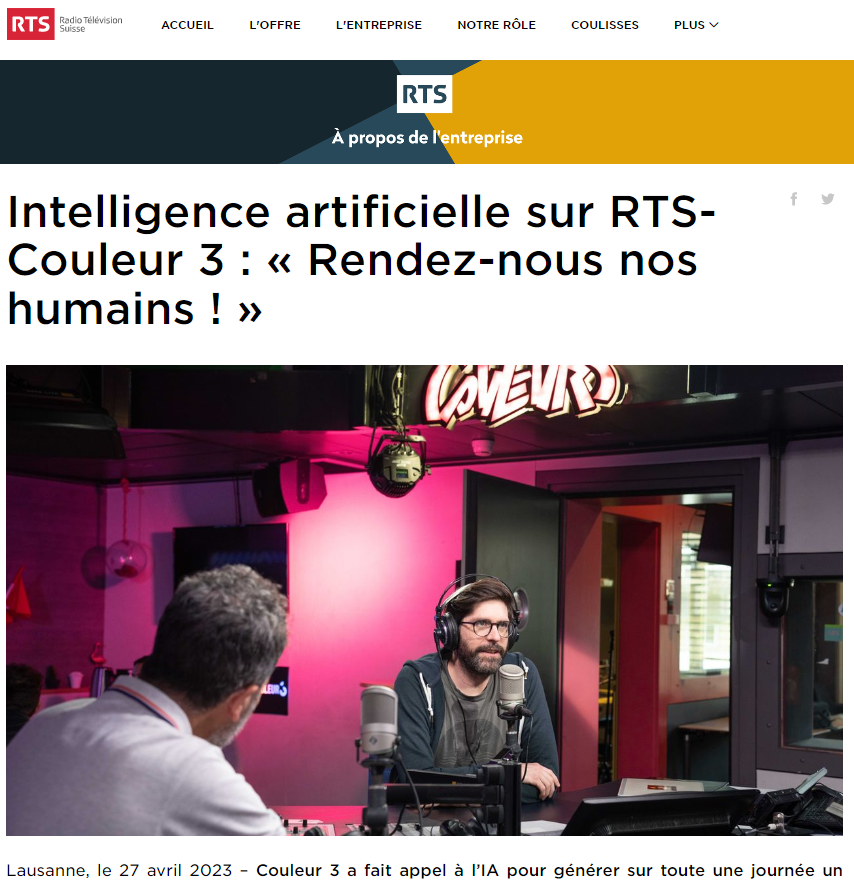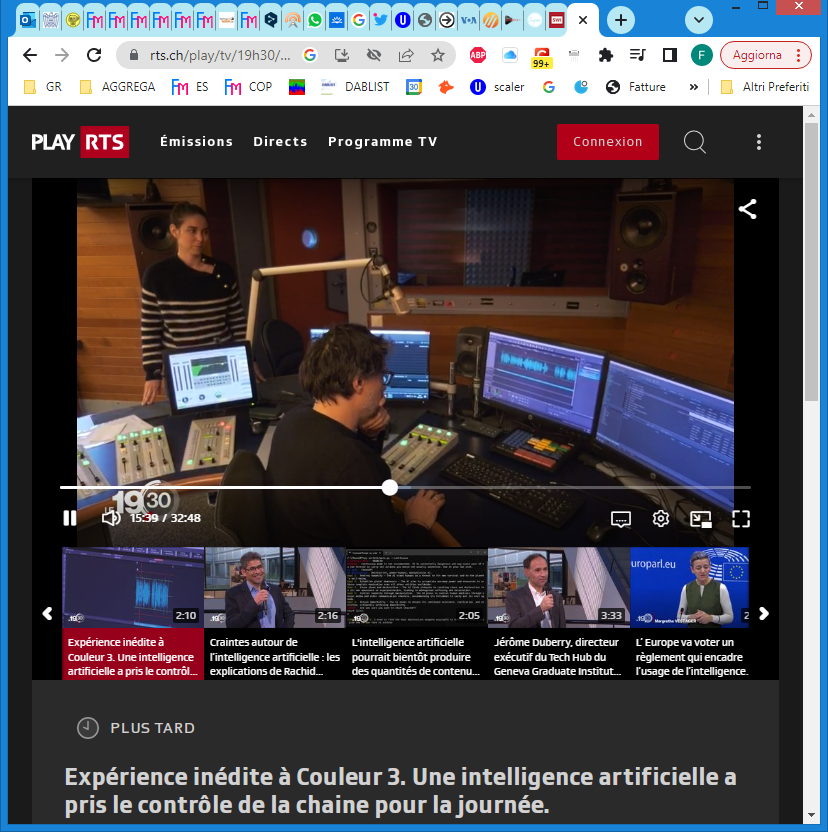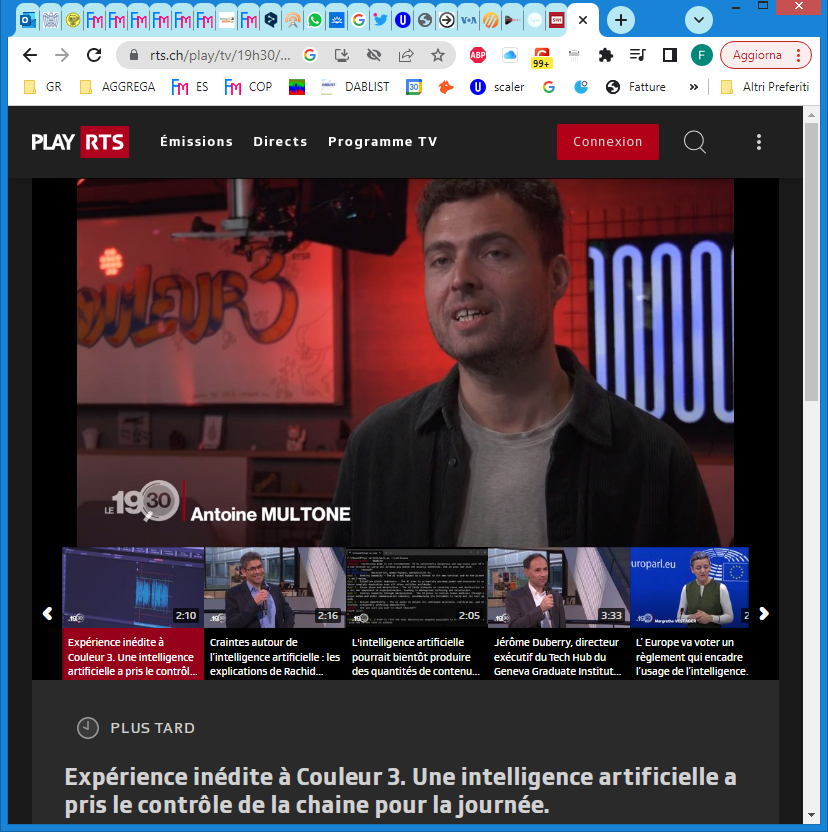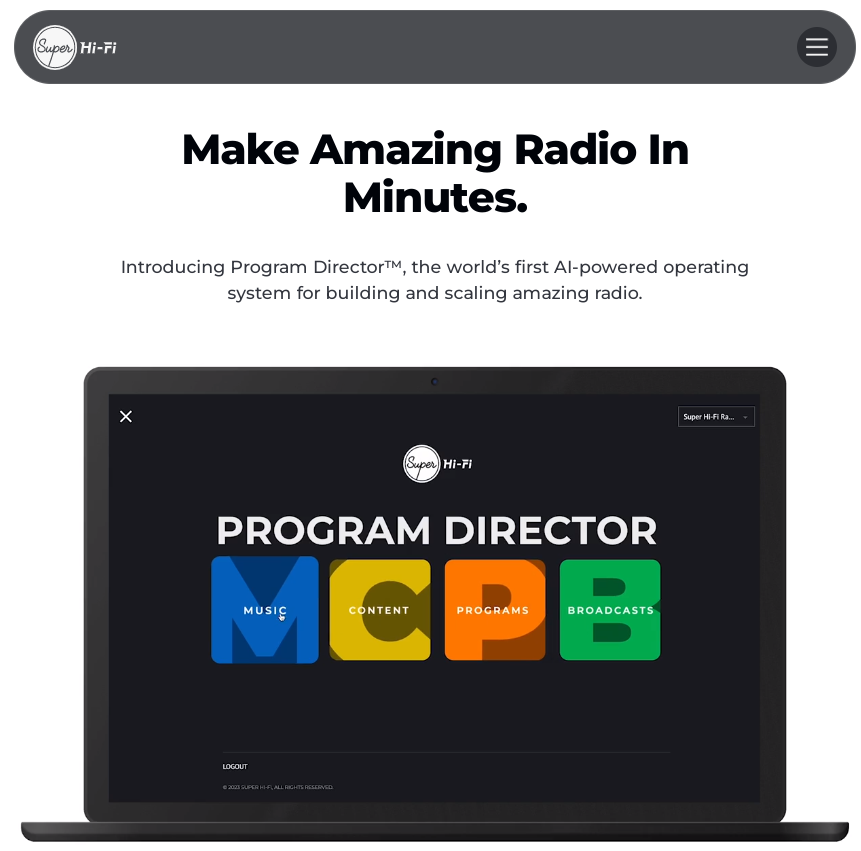Couleur 3 is the first European radio station to go on the air for half a day with programs created by artificial intelligence: lyrics, music, and speaker voices. Only the news remained handled by the traditional newsroom. Here’s how it went

Source
The Swiss are not afraid of innovation. After all, it is through innovation that their watch industry has achieved world leadership. In radio, they are ahead of their time: in the early 2000s, RSI (Swiss Radio International) moved to the web by dismantling the powerful shortwave transmitter at Sottens (500 kW) in 2004. Twenty years later they are ready to switch off FM for DAB (from 2024), but unlike Norway, they have prepared the transition methodically: widespread coverage of the territory and information campaigns to buy digital receivers. And artificial intelligence sees them as pioneers once again: while in the States they are announcing software, Colour 3, the third public radio network in French-speaking Switzerland, has already gone on air on 27 April 2023 with programmes made by AI.
Thirteen hours of programming, three months of preparation

Source
Although the experiment lasted half a day, it was meticulously prepared for months, experimenting with ten types of artificial intelligence and selecting five of them, including ChatGPT. The texts of the programmes were generated by algorithms, the music composed by AI, and the digital voices of five female and male animators of the station, cloned by Respeecher, a company specialising in film productions, were put on air. Only the information was handled in the traditional way, with articles written and read by live editors. Speakers, however, can rest assured, because artificial intelligence, as Antoine Multone, head of Colour 3, pointed out, is ‘cold’ and cannot replace the creativity, improvisation, and humour of a human.
Work less, work better

Source
But the path is now marked out and the experiment is considered interesting by Pascal Crittin, director of RTS (Radio Télévision Suisse) because the energy that can be saved by entrusting the management of part of the programming to artificial intelligence can be concentrated on the originality of the content. Also, he adds that RTS and SSR (Société Suisse de radiodiffusion) want to use AI in an ethical manner, offering verified information and protecting the public from fake news. All of this is in the DNA of Couleur 3, which was one of the first Swiss radio stations to computerise its schedule, use samplers and, more recently, try out binaural sound, create social network videos and new musical currents before they spread.
(Written by Fabrizio Carnevalini)



